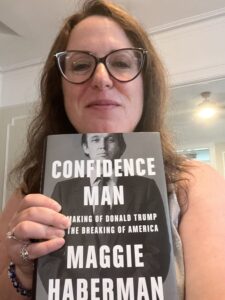
By the time you read this, I should be in Malaga, Spain, where we’re spending a few weeks. Call this our version of what Robb Engen described in yesterday’s Hub as “Revenge Travel” in the post-Covid era.
I realize that the term post-Covid is hardly an apt one as, from where I sit, Covid and its ever-propagating new variants seem ever with us.
Back in 2020 and 2021, it seemed Covid was something a friend of a friend of a friend contracted: these days, it’s more likely to be a next-door neighbour, friends or family, or perhaps the person staring you in the mirror in the morning. This is not a time to be complacent: I still believe in being cautious, keeping vaccinated and boosted to the max, social distancing in public places, and masking wherever there are significant gatherings.
One thing we noticed early in this trip to Spain is a higher use of masks than in North America: masks are still mandatory or highly encouraged on public transit, trains and for air travel. Last week, the Washington Post and other papers warned of a resurgent Covid wave, possibly coupled with the ordinary Flu and other respiratory viruses, constituting a dreaded possible “tridemic.”
I’m writing this as a grab-bag of recent items. As per usual, the Hub will be publishing every business day, with the help of the many generous financial bloggers who grant permission to republish their excellent insights. You know who you are! (Looking at you, Robb Engen, Bob Lai, Michael Wiener (aka James), Dale Roberts, Kyle Prevost, Mark Seed, Pat McKeough, Steve Lowrie, Adrian Mastracci, Noah Solomon, Anita Bruinsma, Mark Venning, Fritz Gilbert, Billy and Akaisha Kaderli, Beau Peters, Victoria Davis, Emily Roberts, and occasional others, including our regular Sponsor bloggers.)
I do of course have wireless access and my laptop while abroad, and am at least partly plugged into the blogosphere and markets. As I wrote recently in my monthly MoneySense Retired Money column, 2022 has been a challenging one for investors: even those holding a version of the classic 60/40 Balanced portfolio. Pretty distressing to see both sides of the stock/bond pendulum falling!
Are GICs the answer to the Fixed-income Rout?
I see Gordon Pape commenting recently in the Globe & Mail [paywall] about the fact that most investors will be looking at significant losses this year, unless they were mostly in energy stocks, GICs or short the market. He suggested 1-year GICs paying around 4.5% are one possible remedy. After last week’s Bank of Canada rate 0.5% rate hike, you can now get 5% or more on 5-year GICs, so it seems an apt time to start building or rebuilding 5-year GIC ladders. The way I figure it, the BOC will hike again at the end of the year, perhaps 0.25% or at most 0.5%, and perhaps once or twice in 2023. But if they do succeed in restraining inflation, then that will be that: if rates top out maybe 0.5% more from here and then start to fall again, you may end up kicking yourself for not locking in 5% for 5 years or as long as you can find. This is assuming you are building a ladder and reinvesting prior GICs every quarter or so: as long as SOME money is coming due every three or four months, the locking-in factor is less of a negative.
But before going overboard on GICs, read Robb Engen’s recent blog at Boomer & Echo: The Trouble with GICs. Robb has an issue with locking your money up for 5 years: an Asset Allocation ETF can do much the same thing if things become normal again, with instant liquidity.
Of course, as many of our guest bloggers have been noting recently, it’s also a good time to “dollar-cost average” your way into high-quality decent-yielding Canadian and US dividend stocks, which to some extent I also have been doing.
Certainly it’s a stressful time to be a semi-retired Do it Yourself investor. Unless you’re fully retired with an inflation-indexed, taxpayer-backstopped Defined Benefit pension, it’s hard not to fret about possible stock-market losses, further inflation and interest rate hikes and the ever-growing political risk generated in Europe (and the world) by Russia’s invasion of Ukraine, continued sabre rattling by China over Taiwan, the constant changes in leadership in the United Kingdom, and even the threat to American democracy that may be accelerating with that nation’s mid-term elections of November.
Threats to Democracy

On the latter topic, no doubt we will begin to see at least some actions by the US Justice Department with respect to former and possible future president Donald J. Trump, the democratic menace who never seems to fade away.
While I have largely sworn off reading any more of the torrent of biographies on Trump — I last tackled this in August — I did make an exception for the Maggie Haberman book that currently tops the New York Times bestseller lists: Confidence Man. It was one of the last books I read before our Spanish adventure.
If you’ve indulged in more than you wish of daily media coverage of the ongoing Trump drama, you can probably skip this and similar books. However, if the last one you read was one of the early tomes from Michael Wolff or Bob Woodward, then Confidence Man may be to your liking as it is current to Jan. 6, 2021 and some of the aftermath.
I’m not going to provide a full review here but will close with the following ominous sentences from the New York Times’ own review of the book, penned by Joe Klein:
“We can hope that Trump is an aberration, not an avatar, but that would probably be delusional. He has created a brutish new standard for American politics, and put a terrible dent in our democracy. Maggie Haberman has been there for it all. The story she tells is unbearably painful because Trump’s success is a reflection of our national failure to take ourselves seriously. We will be very lucky, indeed, if he doesn’t provide our downfall.”

On a similar theme, I have also started to listen to Bob Woodward’s The Trump Tapes, an audio book containing many hours of protracted interviews Woodward and Bob Costas conducted with Trump, starting with one when he was the front-runner Republican nominee early in 2016. In various reviews, Woodward has explained why he took the unusual step of running fairly raw audio recordings with a subject, and I can see his point. There is limited editing and fairly frequent commentary by Woodward so there is value-added. Unpleasant as it is to listen to the former president try to spin his way to convincing Woodward and his readers of his worldview, it is nevertheless instructive. Normally, I’d listen to such an audio book at 1.5 times speed just to get it over with, but in this case — given Woodward’s view that Trump’s voice, cadence and emphasis are all part of the package — I did listen to it at normal 1x speed.
Midterms a referendum on democracy in America and Ukraine
Whether the downfall feared by Joe Klein is imminent or not may be revealed by the end of November. Washington Post columnist Max Boot recently wrote an instructive column titled The midterms are a referendum on democracy in America and Ukraine. Boot observed that “most of the same MAGA candidates who support Donald Trump’s strongman rule at home are either indifferent or hostile to the fate of democracy abroad … Vladimir Putin must have a smugly smile on his face as he reads reports of recent political developments in the ‘Main Enemy,’ as KGM agents of his generation referred to the United States.”
Here’s his (hopefully not prophetic!) conclusion:
“If you support democracy in America and Ukraine, you need to vote for Democrats on Nov. 8. But if the current trends hold up, Republicans are likely to take over at least the House and quite possibly the Senate, too, along with many state offices. This is how democracies die, both at home and abroad.”
How to turn $15,000 into $1.2 million, then lose it all
Finally, an interesting piece in The Guardian this week, about how a Millennial investor was in a hurry to make money during the pandemic. It’s a long story but an entertaining and hopefully an instructive one. Click here for the full link [no paywall]: How I turned $15,000 into $1.2 million during the pandemic, then lost it all. It’s a tale of the possible highs and probable lows of the Robinhood/Wall Street Bets/meme stock crowd and their YOLO (You Only Live Once) approach to life. The initial stake used borrowed money to short cruise stocks at the start of the pandemic and when that worked, the writer goes on to bigger and more speculative risks and by mid 2022 ends up owing more money to the IRS from phantom realized gains than the value of the ultimate portfolio.

